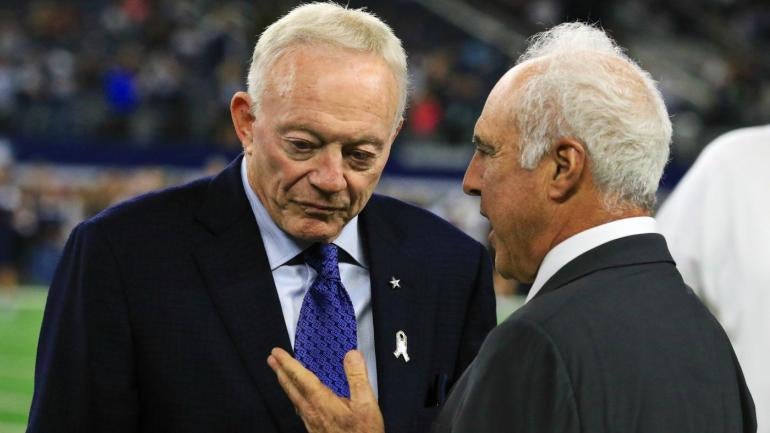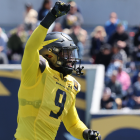
With every new quarterback contract in the NFL, more eyebrows are raised at the inevitability of record-setting dollar amounts at the position, with even inconsistent and relatively unproven signal-callers commanding historic hauls. The league is well aware of the situation, according to NFL Media, with some team owners privately discussing the possibility of a separate cap on quarterback salaries.
The reasoning, Tom Pelissero explained on "The Rich Eisen Show," is that "at some point you want quarterback numbers to not go over a certain percent of your salary cap." For reference, the Cincinnati Bengals' Joe Burrow earns an an NFL-leading average of $55 million per year on the contract extension he signed in 2023, which means his deal alone is projected to account for an average of nearly 25% of the Bengals' entire salary cap per year, leaving the remaining 75% for the rest of the roster.
Adopting "an NBA model" might be one way to better regulate those percentages, as Pelissero noted. The NBA currently has "max" and "supermax" restrictions for free-agent and long-term contracts, limiting the number of players teams can sign to a certain dollar amount, while capping the percentage of the salary cap for which maximum deals account. The idea "really hasn't gained traction" among NFL owners, however, "in part because so many teams have paid their quarterback," contributing to the position's escalating market.
Which raises another point: If an NFL team feels forced into a cost-prohibitive deal for a quarterback that has yet to warrant the club's total commitment, that team can always simply not sign said quarterback. It's easier said than done in a league where a total quarterback reset brings plenty of risk, prioritizing the unknown over the familiar. If the concern, however, is dedicating too much salary-cap space to one player, then it's up to the organization to zig when the rest of the NFL is zagging. And, hopefully, find a good alternative under center.


















